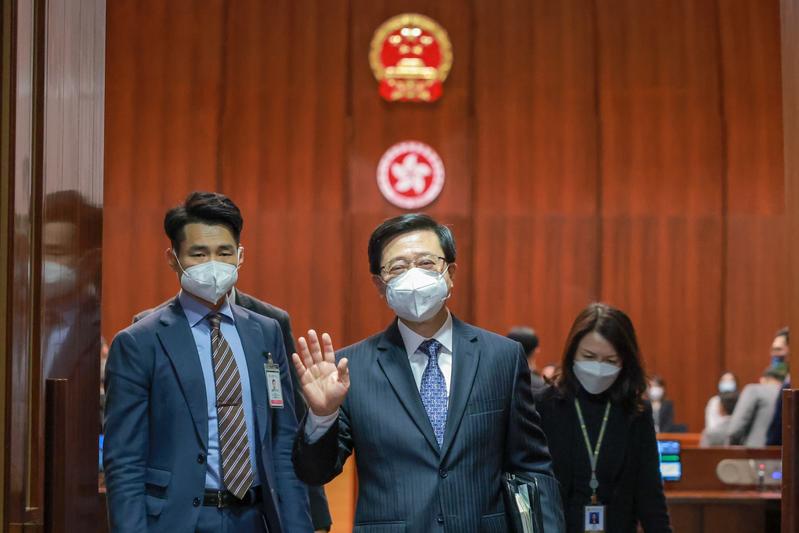SAR seeks to show world it is back open for business


Hong Kong Chief Executive John Lee Ka-chiu has placed the full resumption of travel with the Chinese mainland and restoring normalcy after COVID-19 at the top of the special administrative region government's agenda for the new year, and his administration plans to organize more visits to the mainland and abroad in the following months in a bid to convey the message that Hong Kong is back on the global stage.
Lee revealed the plans when explaining to the city's legislators what the SAR government's priorities will be in the first half of the year, during a Q&A session at the Legislative Council on Thursday.
Hong Kong resumed quarantine-free travel with the mainland on Jan 8, enabling over 80,000 people to enter the mainland per day in the period before the Chinese Lunar New Year, which begins on Jan 22.Lee said that an average of 20,000 Hong Kong travelers have visited the mainland every day since Jan 8, and land crossings are operating smoothly so far.
He added that the Hong Kong government is working hard with the mainland to increase the daily quota of return passengers, with the goal of full resumption of cross-boundary travel as soon as possible.
Currently, travelers need to provide a negative COVID-19 nucleic acid test result taken within 48 hours of departing. Lee said the government's goal is to replace nucleic acid tests with self-administered ones in the long run, but this still needs further negotiation with mainland authorities.
He added that about 20,000 cross-boundary students may be the first to benefit from the new policy. On Wednesday, Secretary for Education Christine Choi Yuk-lin said the government is seeking to free the students and their companions from the daily quota restrictions for cross-border travel starting from Feb 1 when they return to Hong Kong for face-to-face classes.
In the new year, Lee said the government will continue to remind the world that an open Hong Kong is back. Lee said that he and other senior officials are planning visits outside Hong Kong over the following months, including to Guangdong province as soon as possible to strengthen connections and collaboration, and to meet provincial leaders and officials of the cities in the Guangdong-Hong Kong-Macao Greater Bay Area.
As this year marks the 10th anniversary of the Belt and Road Initiative, Lee pledged the Hong Kong government will make full use of the opportunity to strengthen ties with other BRI economies.
In early February, he will lead a delegation of government department heads and local business leaders to Saudi Arabia and the United Arab Emirates and will attend the Boao Forum for Asia in Sanya, Hainan province, in late March.
In addition to the large-scale "Hello HK" promotion campaign scheduled for February, the city will host many events with international participants and with international appeal in the coming months, among them the Standard Chartered Hong Kong Marathon, Art Basel Hong Kong and the Pop Culture Festival — which will be held for the first time in the city.
A number of cultural, sports and transportation infrastructure projects will either be completed or begin construction this year. Lee said he hopes they will help diversify Hong Kong's development in the long term.
He also reviewed the key achievements of his administration in the past year, such as better dovetailing with national strategies and attracting leading enterprises and individuals to Hong Kong.
The government also released blueprints for innovation and technology, primary healthcare and youth development, in a bid to strengthen the city's competitiveness and tackle deep-rooted issues.
He also announced the end of quarantine for people with COVID-19 from Jan 30, as one of the latest measures to bring Hong Kong's social and economic activities back to normal. The requirement to submit personal data through the government's online self-reporting platform will also be canceled.
As the risks posed by the virus are now significantly lower, the government will gradually establish a new system to manage COVID-19 as a common upper respiratory infection disease, which is a necessary step to ensure life in Hong Kong can return to normal.
- China's CR450: A new era of high-speed rail at 400 km/h
- Tansuo 3 to pioneer future of deep-sea exploration
- Xi's discourses on Chinese modernization published in Japanese
- Officials summoned over alleged garbage bin food served to students
- Caring hearts help to enhance quality special education
- Xi sends condolences to South Korean acting president over plane crash




































